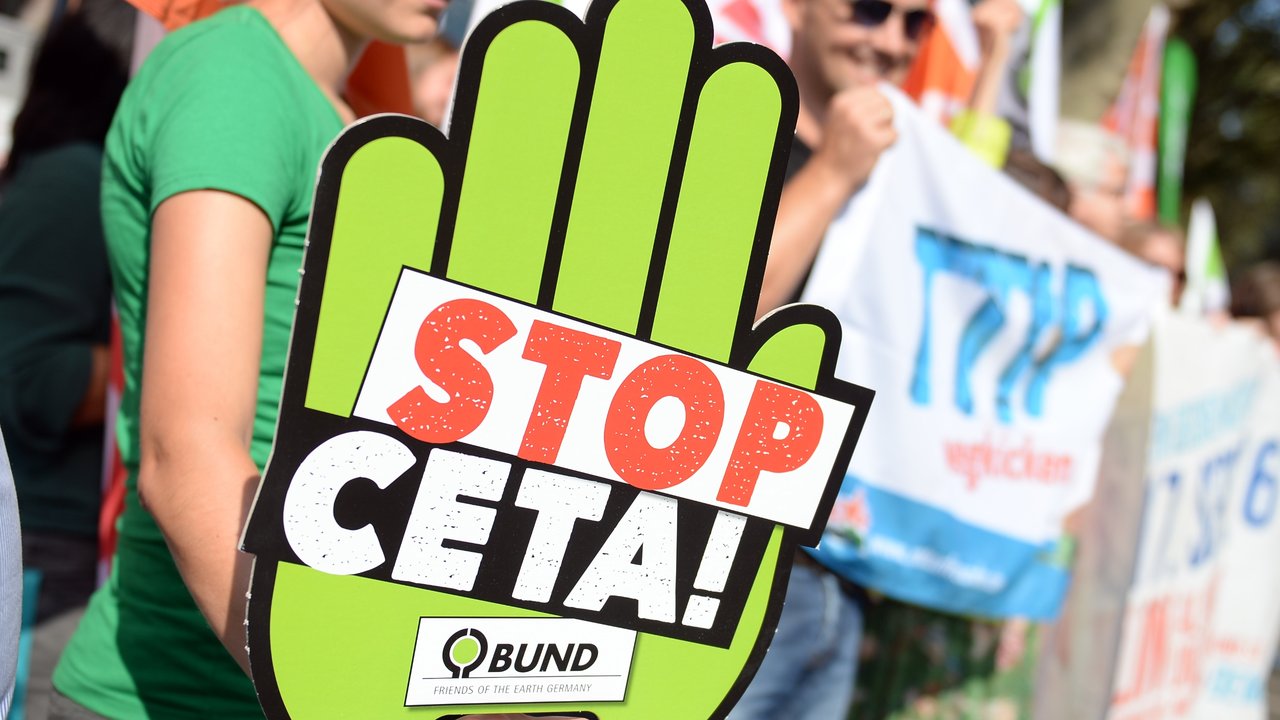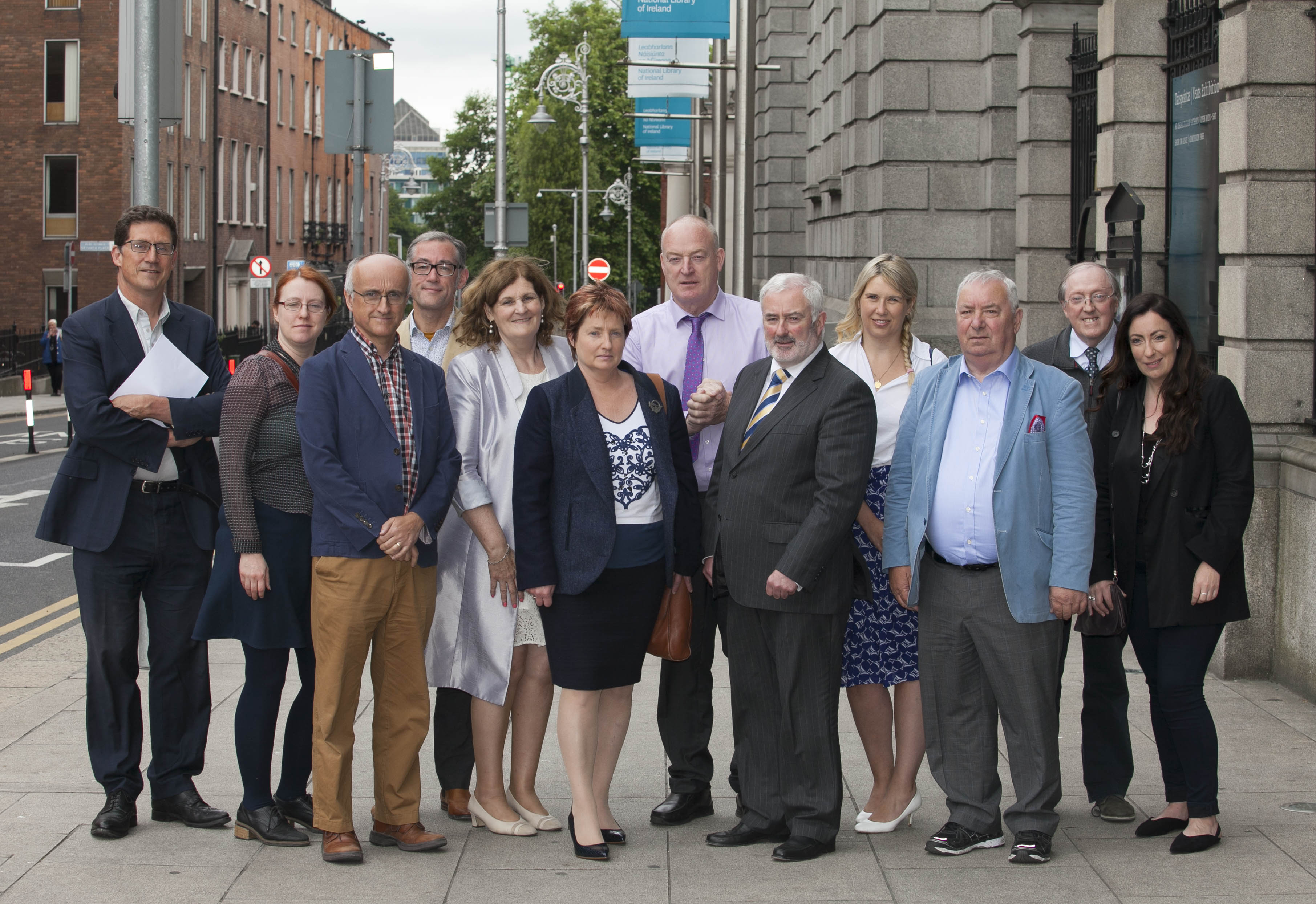What’s the deal with the EU-Mercosur trade agreement?

21 June 2021
Campaigners have long-held the position that the EU-Mercosur Agreement fails to protect human rights, critical ecosystems and the climate.
Most recently, a new report released by the Irish Centre for Human Rights (ICHR) condemns the environmental degradation and human rights abuses in the controversial agreement.
According to the EU-Mercosur Agreement: A Human Rights Analysis, the authors Reshma Das, Emma Kelly and Simon Seitz, concluded that the trade deal is likely to drastically increase deforestation, carbon emissions and the abuse of indigenous people.
The trade pact was struck in 2019 between the European Union and the Mercosur region after two decades of talks, but right now it’s currently on pause.
So what is the Agreement exactly? What are the implications? And what happens next?
So, let’s take it from the top: what is the EU-Mercosur Agreement?
The EU-Mercosur Agreement is a bilateral trade agreement between the EU and the four Mercosur States of South America – Brazil, Argentina, Paraguay and Uruguay.
The agreement promotes free trade and commerce between the EU and the 260 million consumer region of the Mercosur, which is the fifth-largest market outside of the EU.
If it comes into force, it will be the largest free trade agreement negotiated by the European Union.
The European Commission website has called the deal a “win-win” for both the EU and the Mercosur region, creating opportunities for growth, jobs and sustainable development on both sides.
The agreement came after years of negotiations. Talks originally began in 1999 but stalled and floundered for years before regaining momentum in 2016.
Although negotiations for the deal are currently at a pause, other parts of the EU-Mercosur Association Agreement were concluded, and an agreement was reached on the pillars of political dialogue.
The negotiation text has not yet been published but was leaked by Greenpeace.
Since talks began, scrutiny of the deal intensified from campaigners across the continent.
What are the environmental issues with the agreement?
The trade deal offers substantial reductions in tariffs and opens new markets to the EU-Mercosur blocs, but it also has the potential to cause lasting damage to ecosystems and the climate.
Mercosur countries and their neighbours already are undergoing rapid deforestation to meet the global demand for meat and livestock feed.
The trade agreement threatens to significantly ratchet this up as it would substantially increase industrial farming for ethanol, beef and soy in Brazil.
17 per cent of the Amazon Rainforest has already been destroyed through deforestation.
According to the ICHR report, ratification of the deal will result in the expansion of deforestation by 25 per cent per year, which equals to the entire land area of the the Netherlands.
Approximately 20 per cent of all soy and 17 per cent of beef exported to the EU from the Mercosur regions are linked to deforestation.
The Amazon Rainforest is on the brink of collapse and if deforestation continues to accelerate, the world will switch towards a novel ecosystem, which is a human-built, modifying influence on the climate and environment.
The novel ecosystem will cause major impacts on weather patterns and the global climate regulation system.
According to the text of the EU-Mercosur Agreement itself, there is no legally binding mechanism to ensure that states from both trading blocs adhere to their international climate change agreements, including the Paris Agreement and the European Green Deal.
Although the EU-Mercosur agreement mentions sustainable development, “The regulations are too lax and they don’t contain any real obligations,” said an author of the paper, Emma Kelly.
“It [the agreement] doesn’t contain sufficient standards to ensure the protection of the environment or sustainable trade which is in contrast to the requirements of the Paris Agreement, that the EU and all four Mercosur countries are parties to.
“As such, they are legally bound by the [Paris] treaty,” she said.
How does the EU-Mercosur Agreement do when it comes to European climate goals?
According to the ICHR Rights report, the trade agreement is inconsistent with the European Green Deal.
The European Green Deal was described by the European Commission President, Ursula von der Leyen as “Europe’s man on the moon moment.” The ambitious deal committed the EU to become carbon neutral by 2050, reverting biodiversity loss and stopping climate change.
Compared to the current level of emissions from the trade in these products between the EU and the Mercosur, the growth in greenhouse gas emissions will be 34 per cent, according to the ICHR.
The European Green Deal says that no group or region should be put at a disadvantage through economic development.
“This is the hypocrisy and contradictions of the EU,” said Ms Kelly. “They [The EU] have great marketing campaigners for sustainability and becoming climate neutral by 2050, yet they’re signing away the Amazon Rainforest and precious ecosystems surrounding that area.”
In the current draft of the EU-Mercosur Agreement, there are no enforcement mechanisms to guarantee compliance with international sustainability treaties.
So what are campaigners looking for?
Back in March 2021, 450 civil society organisations launched a coalition to stop the EU-Mercosur Agreement.
The organisations warned that the trade deal would have detrimental effects on the climate, biodiversity, labour and human rights.
In their founding statement, the coalition said that the deal was based on an outdated 20th century model of trade that “serves corporate interests at the expense of planetary boundaries and animal welfare and drives untenable social inequalities.”
Although the ratification of the EU-Mercosur Agreement is currently on pause, the ICHR warns that the trade deal poses a detrimental risk to the environment and human rights.
The EU needs to implement stricter standards before any trade deal, which would mean companies would know where commodities are coming from and introduce due diligence to ensure industries are legally responsible for their supply chain, Dr Laura Kehoe told The Green News.
“It’s like we live in this story whereby its money versus the health of the planet. How have we disassociated ourselves so far to think that destroying the Amazon rainforest and our very own climate stability, would in some way be an economic gain, it’s just not,” said Ms Kehoe speaking to The Green News.
The EU-Mercosur trade deal also excludes any human rights clause, which normally exists within EU trade agreements.
By entering the agreement, the EU would willingly commit to a trade deal where there are known human rights abuses of indigenous peoples in slavery and forced labour.
Two years on from when the trade was struck in 2019, it is unclear when – or whether – it will enter into force due to Europe’s concern over the Amazon Rainforest deforestation and skepticism about Brazil’s commitment to tackling climate change.
If the trade deal is passed by the European Union, a unanimous vote in the Council is needed on the agreement, and it must then be voted on by the European Parliament.
The final stage of the agreement is the subsequent ratification from all Member States.
Story by Shauna Burdis







